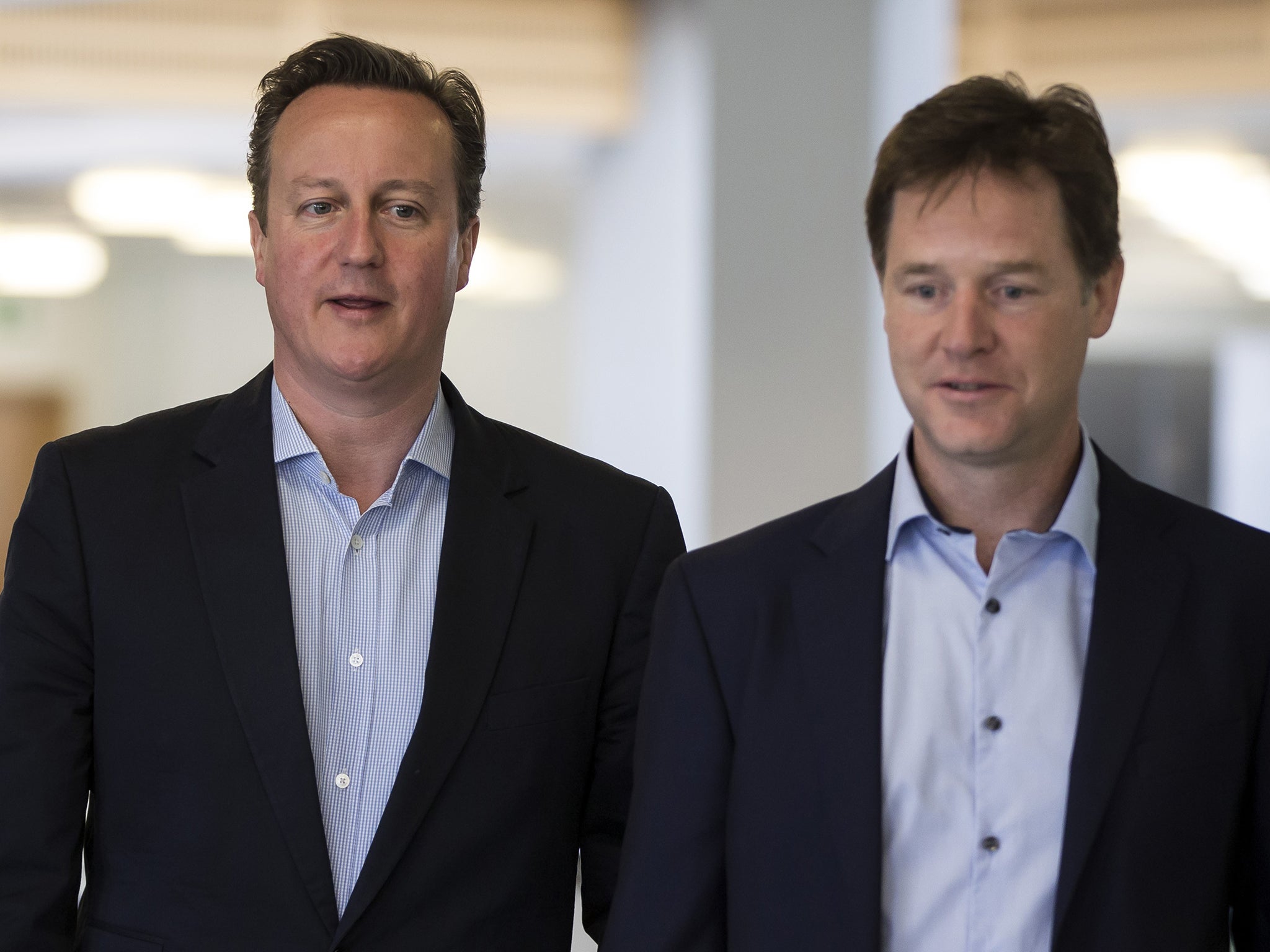General Election 2015: What happens after the election?
A hung parliament looks likely, so what are the potential outcomes?

Your support helps us to tell the story
From reproductive rights to climate change to Big Tech, The Independent is on the ground when the story is developing. Whether it's investigating the financials of Elon Musk's pro-Trump PAC or producing our latest documentary, 'The A Word', which shines a light on the American women fighting for reproductive rights, we know how important it is to parse out the facts from the messaging.
At such a critical moment in US history, we need reporters on the ground. Your donation allows us to keep sending journalists to speak to both sides of the story.
The Independent is trusted by Americans across the entire political spectrum. And unlike many other quality news outlets, we choose not to lock Americans out of our reporting and analysis with paywalls. We believe quality journalism should be available to everyone, paid for by those who can afford it.
Your support makes all the difference.1. Labour “confidence and supply” government
Ed Miliband would get agreement from the SNP or Lib Dems (or both) to support Labour in votes on confidence and the budget.
The cost to Miliband
Would have to agree extra cash for schools and agree sweeping extra devolution to Scotland.
Advantage
Allows government to plan ahead without the constant threat of losing a confidence vote.
Disadvantage
Leaves Labour at the mercy of smaller parties pressing for big changes to its legislation as well as his own MPs disillusioned with concessions.
Miliband would do a formal deal with the Lib Dems, including the allocation of ministerial posts to Nick Clegg’s party.
The cost for Miliband
Having to compromise over key plans – notably his economic strategy.
Advantage
Assuming Labour and the Lib Dems can muster a majority, it allows Miliband and Clegg to present a five-year programme.
Disadvantage
Miliband would face anger from left-wingers over dealing with Clegg, while Lib Dems would worry about alienating right-leaning supporters.
Are you undecided about who to vote for on 7 May? Are you confused about what the parties stand for and what they are offering? Take this interactive quiz to help you decide who to vote for...
3. Labour minority government
Ed Miliband would depend on the support of SNP, Lib Dems and other minority parties on a vote-by-vote basis.
The cost to Miliband
Permanently living on the edge.
Advantage
Avoids wrangling between parties. Labour would argue that smaller parties face the wrath of the voters if they force a second election.
Disadvantage
Daily instability with the government facing the constant threat of defeat. Miliband could face a backlash over the influence being wielded by the SNP.
4. Conservative minority government
David Cameron would have to rely on the support of Lib Dem and DUP MPs, as well as any Ukip MPs.
The cost for Cameron
The permanent threat of Commons defeat.
Advantage
Allows him to put forward a Tory Queen’s Speech and challenge other MPs to vote it down. He would ask Lib Dem, DUP and Ukip MPs whether they fancied a second election.
Disadvantage
Permanent threat of Commons chaos combined with dealing with anger on Tory benches that he has failed to win a majority.
5. Tory “confidence and supply” government
David Cameron would ask for support from the Lib Dems, the eight or nine DUP MPs and any Ukip MPs in confidence and budget votes.
The cost for Cameron
Would have to promise the Lib Dems that Tories would find extra money for education and slow welfare cuts.
Advantage
The markets would welcome this, and the Tories would have some breathing-space as a defeated Labour Party turns inwards.
Disadvantage
Almost every vote would leave the Tories vulnerable to defeat by a Labour-Nationalist alliance.

6. A Tory-led coalition
David Cameron would offer the Lib Dems a repeat of the last five years with seats at the Cabinet and a new Coalition Agreement. If the numbers are very tight, he could try to bring in the DUP.
The cost for Cameron
Major concessions to the Lib Dems.
Advantage
Mr Cameron has been comfortable with Coalition since 2010 and it allows him to plan for five years.
Disadvantage
Right-wing MPs would fume at a fresh deal with the Lib Dems. Nick Clegg might struggle to keep his party on board over for a second time.
Join our commenting forum
Join thought-provoking conversations, follow other Independent readers and see their replies
Comments